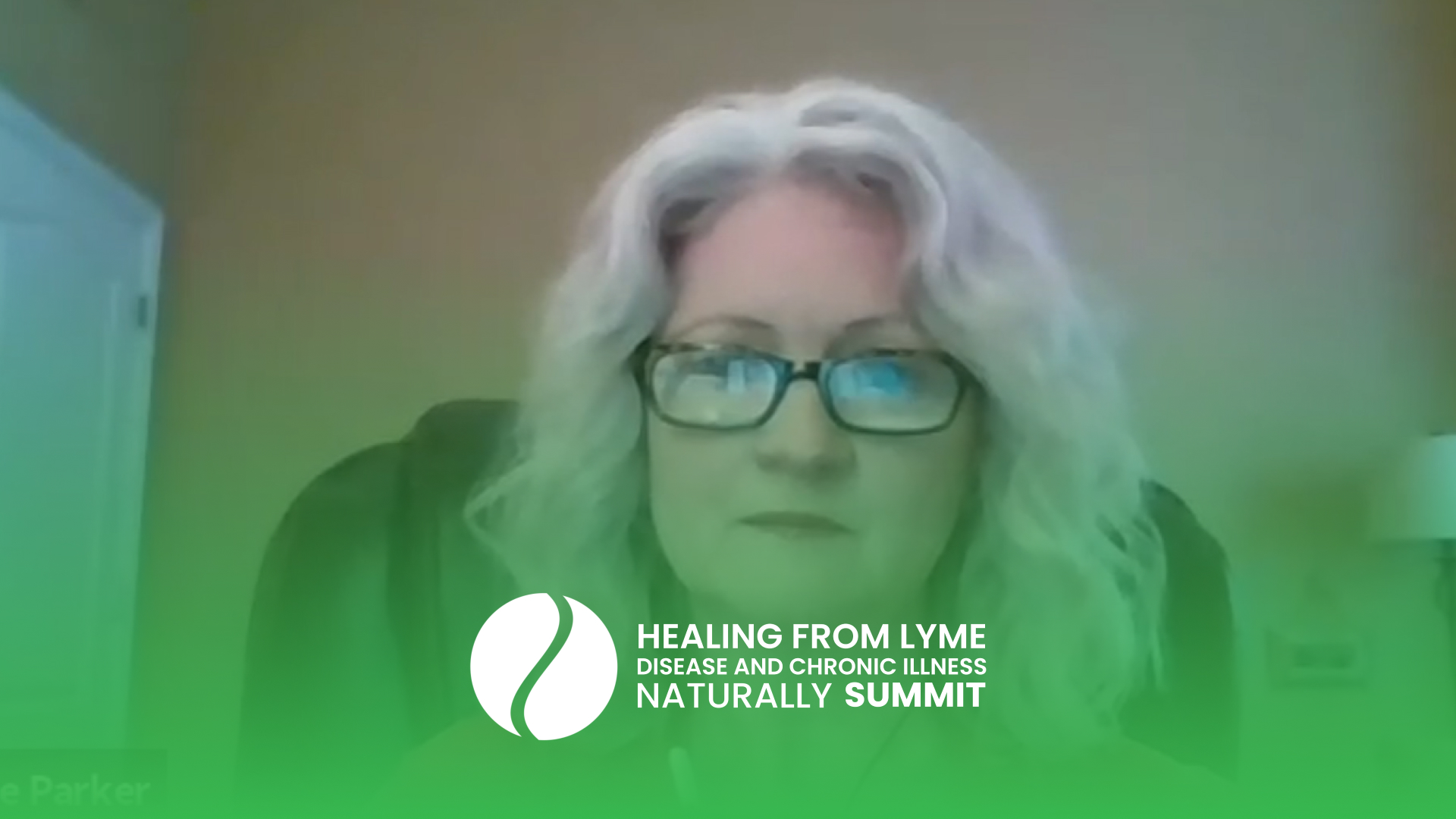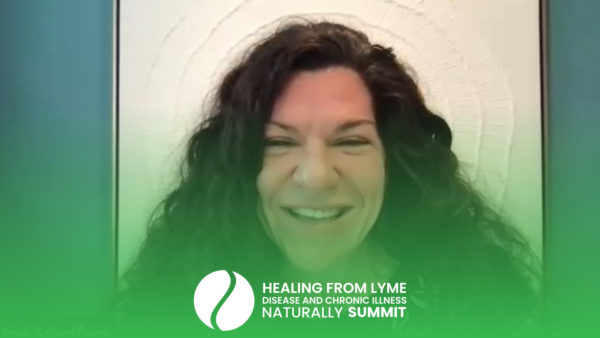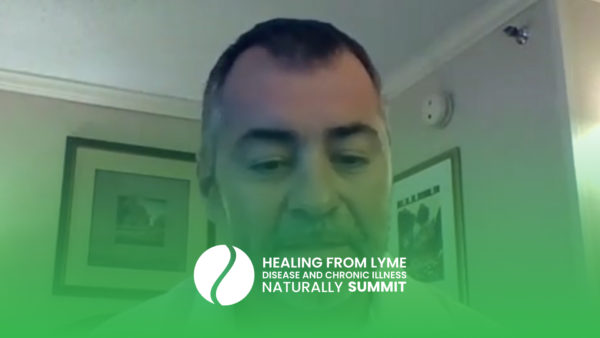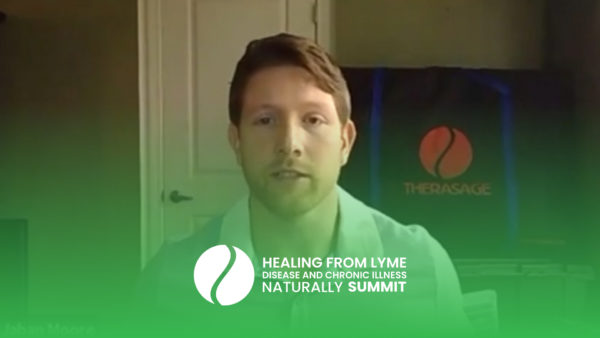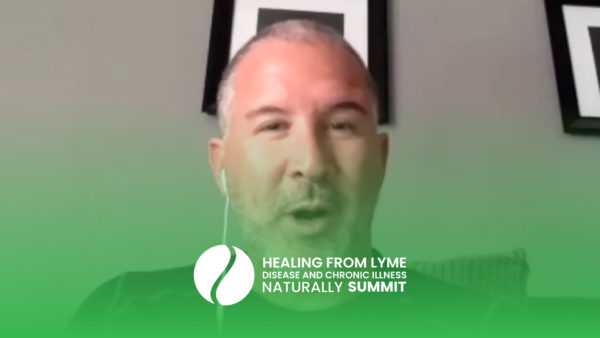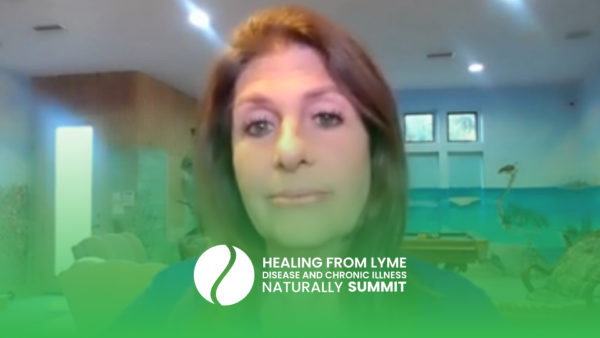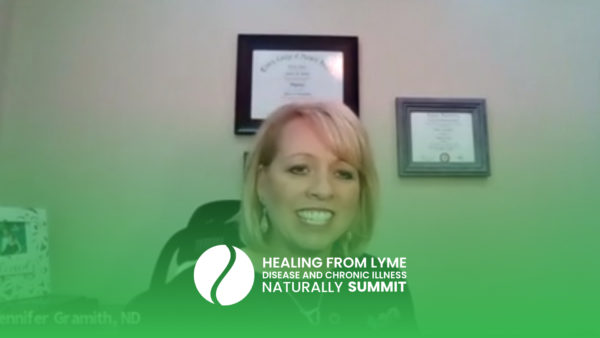Join the discussion below

Rob Besner, PSc.D, Co-Founder and Chief Science Officer of Therasage, has always been an advocate of natural health and wellness. Graduating from Boston University in Pre-Med, Engineering, Psychology and Business, he continued onto post graduate work at Case Western Medical School and Holistic Medicine After many years of illness, Mr.... Read More
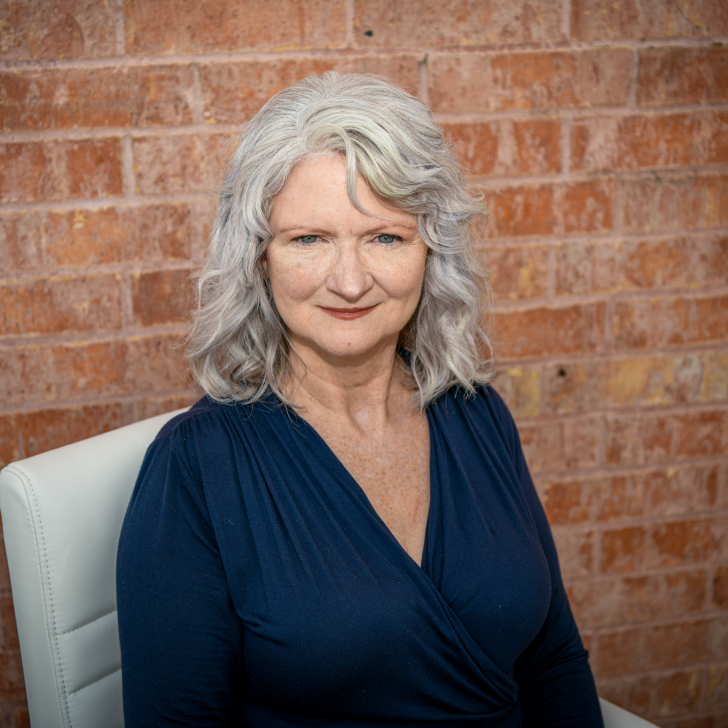
Counseling Associates LLC is owned by Julie Parker, LPC, MHSP, a counselor with over 25 years of experience helping individuals, couples, and families. Julie works with patients of all ages, is a Certified Anger Management Specialist (CAMS-II), and has had extensive training in helping those with chronic conditions and illnesses. Read More
- You’re not alone with your chronic ailment, your family and support system is as important to your healing process as your practitioner.
- Take a deep dive and learn more about the best way to create a healthy family dynamic.
Related Topics
Chronic IllnessRobby Besner PSc.D.
Hey, everybody, it’s Robby Besner, and we’re back with another great episode of the Healthy Hotline and our Lyme campaign. And today we have a really unusual guest. Her name is Julie Parker. And she is a clinician, she’s a therapist, she works in a group. She’s out of Mississippi. So if you hear that Mississippi quaint accent in her voice, then you’ll know who she is and where she’s coming from. By the way, I have an accent too. I’m from New York, for those people that don’t know that. Julie’s been in practice for many years, and what’s really cool about what she’s gonna share with us today is something that really is a topic that is heartfelt for all of us. It speaks to the family dynamic.
And I can’t tell you how many times I’ve heard in the last 25 years from Lyme families, from Lyme patients, that, “I go to my doctor, I’m not feeling well, I’m not feeling myself.” And they say, “You know what? We did the labs, we did the tests, we did this, we did that. You’re fine. It’s gotta be somewhere upstairs. You got a challenge with your- Go see a psychiatrist. This isn’t a physical challenge.” But guess what? We know that that’s not right, don’t we? All of you out there in Lyme land, I’m going to introduce Julie Parker. Welcome to the Healthy Hotline, Julie. And can you spend a minute or two and just give us a little bit of the backdrop of how you got into counseling, a little bit about your practice.
By the way, if you need to get to Julie Parker and her group directly, you can get to her by telephone. You can call her her local number. It’s 901-497-6827. Or you can get to her, she’s got a cool website. It’s www.counseling, spelt C-O-U-N-S-E-L-I-N-G associates, A-S-S-O-C-I-A-T-E-S LLC.com. Or you can actually just send her an email at [email protected]. So with that, Julie, give us a little bit of the background and tell us sort of in a minute or two about a little bit of your backdrop, and then how you got some experience with Lyme in your practice, and then we’ll move forward with today’s interview.
Julie Parker, LPC, MHSP
Okay. Thanks. Thanks for having me. Well, I got into counseling… Wow. For a lot of reasons, I guess. So that would be hard to nail down, but honestly, if you go all the way back, when I was a kid we moved around a lot and I encountered counselors at schools. That was my first exposure to counseling. And I thought, “Huh, I think I might wanna do that.” Thinking that’d be a school counselor. And then school counseling was not for me. Decided I wanted to be in the community mental health field. Went from there, worked at some hospitals, did various things, actually. And then I started my private practice about 11 years ago. I went out on my own. Got into Lyme… It sounds like it’s a fun thing to get into, right? It’s not. But got into Lyme in 2013, when my middle child, younger daughter, was diagnosed with Lyme and she has sort of the unfortunate common background of nobody knew what was wrong with her for a long time.
And when we finally figured it out and a Lyme literate physician challenged me, when he figured out what I do for a living, he challenged me to get educated. He said, “Here’s a bunch of stuff I need you to do. Here’s some things I need you to learn. We need mental health practitioners.” At the time I didn’t really understand the gravity of what he was asking, not just the responsibility, but the dearth of mental health professionals that understand Lyme. So here we are. And I’ve been seeing Lyme patients since that time, honestly. Since before I was fully educated about Lyme. I say fully educated. There’s always something new to learn. But once I figured out that so many mental health conditions may actually be caused by Lyme and its associated infections and conditions, but how that diagnosis then also affects the patient. I started asking lots of questions, and like I said, here we are.
Robby Besner PSc.D.
Well, you know what? That’s really interesting to me. Aside from the general malaise and the kind of things that you just articulated, the doctors, the health practitioners, whether their Lyme literate or not, not really getting the diagnosis soon enough to get you on a course for a proper treatment protocol and saying, “If it’s not physical, it has to be mental.” There’s always this connection between mind-body that we understand in healthcare, but very few practitioners actually deal with the mind side of the mind-body experience. The mental health part. The anguish, the anxiety, the stress that goes on within the patient. And they’re already feeling the physical aspects.
And it’s very, very hard sometimes, most of the time to reconcile the emotional part. And then when you extend that out to the family unit, right? So now you’ve got these caretakers that are surrounding you, that supposedly love you and are there to support you, whether it’s professional or just in your family unit, and everyone’s feeling the same anxiety and frustration because you’re not feeling better, they’re trying really hard. We’re exhausting most of our resources, both financial and people that we know in the community, and yet we’re not feeling better. And that is a real conundry. And so here you are, and this is why we’re talking today. Is because I want everybody out there in Lyme land to understand that there are Julie Parkers out there.
Maybe not as talented as you, but there are people out there that are designed, and their whole persona is around understanding that dynamic and helping families, helping the patients, helping the caregivers, helping the families get reorganized and getting on the same side of the page or the same team, you know, in a sense. And so that we’re now rather than pulling at each other and going in opposite directions, we’re actually working in a unified way to create a healthy environment, not just for the patient, but also for the family. So let’s dive into that a little bit. What are the kinds of things that you either see that you’ve experienced in your own family dynamic or that you’d like to share with the people listening today that might help them give them a little bit of light at the end of the tunnel? You know, that they could use.
Julie Parker, LPC, MHSP
That’s a big one. Well, I think it’s… To say that that’s a multifaceted issue is probably the understatement of the day, at least. And there is light at the end of the tunnel, for sure. I know families that have recovered or the patient has recovered or the patient is at least maintained at a level that they’re functional and everybody’s better. So I wanna say that for sure, that there are people that can recover from this. And there’s such an upheaval that happens with Lyme, whether it’s in the path to get the diagnosis or you get the diagnosis and part of your family believes you and part of your family doesn’t, and that causes tension.
Or you get the diagnosis and you can’t afford the treatment or the treatment you think isn’t working. And it just is, it’s a mountain to climb. It’s not a steep hill, it’s a mountain to climb. And it causes so much upheaval. And I’ll also say then there’s trauma. I believe that, and many of the people that I’ve learned from and that I talk to believe that by the time you get a Lyme diagnosis, you have trauma from the medical community. So we add that on top of everything else. You’ve got trauma from not being believed, as you mentioned, from being dismissed, from being told, “Yeah, you need a psychiatrist.” Well, you probably do, but not for the reason that doctor thinks you do.
Robby Besner PSc.D.
Right, exactly.
Julie Parker, LPC, MHSP
But then there’s extra trauma sometimes from friends and family who say, “Well, all the tests are negative” or “10 doctors said you didn’t have Lyme and one does, so how can one be right and 10 be wrong?” Or 20 or 50 or whatever it is. So, yeah, I don’t know if I’m answering your question. There’s so much…
Robby Besner PSc.D.
No, no, you’re doing great. Sometimes it’s like I’m the patient and I wanna take a more natural approach to my protocol, but the surrounding family members and even the health provider might be more traditional or an allopathic approach where they’re using antibiotics, which goes against what you might be reading or what you want to know. And it’s very confusing out there. Aside from not feeling well, it’s easy to get overwhelmed, even if you’re healthy, about it. But it does raise my curiosity, or at least the people out there to know, well, first off that there is hope. And also that it may take a little bit of counseling, and I’m not talking about comprehensive, Freudian, leather couch, years and years of psychoanalysis, you know? We’re just talking about getting everybody in the same room, talking through some of the issues and the frustrations, and then having an active listener like you, ’cause for the little that I know you, ’cause we’ve only met a few times, I know that you’re an active listener and that’s an important thing for a therapist, skillset for a therapist to have before they come out with giving some helpful guidelines as to the ways to get back on track.
But the idea is mostly that you do need an active voice. You do need to be able to articulate your frustrations and let those out so that it doesn’t get bottled up and you become victimized again in another way, just from an emotional standpoint this way, which obviously will have another stress and another impact on you that you don’t need. So what kinds of- Do you see young people? Do you see old people? Do just a Lyme patient themselves come to you or does the mother come to you and say, “You know, I can’t handle this situation in my house anymore with my daughter or my son. I’m doing the best I can, but nothing’s working.” Tell me how that works within your practice to give the people out there a feeling for what you do and how to approach this very delicate topic.
Julie Parker, LPC, MHSP
Okay. Well, I was thinking as you’re asking the question. The answer is, yes, I see all those people. I see children all the way through adults. Now, primarily I see teens and older. When I see children, it’s usually- Now, once in a while, I’ll make an exception, I’ll see children who are Lyme or a PANDAS, PANS diagnosed.
Robby Besner PSc.D.
Right.
Julie Parker, LPC, MHSP
But in the process of that, a lot of it is helping them understand and maybe learn some behavioral ways to manage what’s going on with them. And the focus then ultimately turns out to be the caretaker. With the children anyway. So yeah, I see a full range of clients or patients. And I do hear a lot, especially from the mothers, actually, about feeling overwhelmed. There’s so much responsibility. And I hear often that they end up with decision fatigue. I don’t know if that’s a concept you’re familiar with. There’s so many decisions to be made. And during the course of the day, I get up and, “What’s for breakfast?” That’s a decision. Well then when it’s not just “What’s for breakfast?” Breakfast is gluten, dairy, sugar, casein-free, and then it’s, “Oh, no, what treatment do we use?” And then, “How’s my child feeling?” Or a spouse or whomever it is, the decisions involved in managing this illness are overwhelming.
And so you may have a mother or another parent or another caregiver who just feels like they’re being crushed under the level of decisions that they have to make and the responsibility of everything. And so they end up with a lack of emotional, spiritual, physical, intellectual energy. And sometimes what I do is listen to that person just have a safe place to say, “I don’t know how I’m gonna do this.” And to acknowledge that yeah, I get it.
Robby Besner PSc.D.
Yeah. You know, we have a Lyme experience in our family, too. It’s kind of part of our reason why we’re so compassionate to the Lyme community and the Lyme and the autistic community, they seem to follow the same kinds of dynamic within the family and the patients and so forth in many ways. My theory, when my daughter got sick with Lyme 17 years ago, or maybe a little more now was I didn’t want her to be defined by her diagnosis. And so oftentimes… Julia was very intelligent and very social and very beautiful just as a person, and also good looking. By the way, the only thing I was responsible for was her belly button. I did make a perfect belly button when she was born. But everything else, my wife did all the heavy lifting. And I was extra hard on my daughter because I thought that she was just slacking. She had Lyme. Early on we didn’t know what was going on, but I felt like she wasn’t really utilizing all of her God-given talents and so forth.
And then later on, when she was diagnosed, then now she became- She was symptomatic throughout the years, and so I always felt like when she wasn’t giving it her all, she was just hiding behind that diagnosis. And I said, “Look, I expect more than you.” And then one day my wife corrected me and she said, “You know, she’s got Lyme disease.” And being a healthy person, and just talking from the family dynamic now, being a healthy person, it’s hard sometimes to understand what it’s like not to be healthy or have a chronic ailment, just that dynamic in itself. And as soon as that occurred, I just opened my eyes up and I was a different person about it. And so I think that that’s an important message that people need to know out there in terms of the family dynamic. Does that make sense to you?
Julie Parker, LPC, MHSP
It does, it does. In fact, that that hits close to home. So actually I have three children, all three of them have a Lyme diagnosis, as do I. But when my daughter, the one that was first diagnosed sort of just dipped us into this world that we didn’t even know existed, frankly, until we got there, my experience with her- And of course not having been as sick as she was, no full understanding of what it felt like to be in her shoes, and that’s hard as a parent too, but yeah, I remember times that I would see her be able to go out and do something with a friend, but then she couldn’t finish high school, right? She couldn’t go to class, she couldn’t get out of the bed. She couldn’t whatever, and so as parents, it was difficult to reconcile that.
And we butted heads over it some, and I’ve had to go back and say to her, “I’m sorry, I didn’t understand fully.” Even in the midst of it, right? Even when we knew she had Lyme. It’s just hard to see. It’s hard to reconcile what you experience at home versus what maybe Lyme patient is able to present outside the home, even if it’s for short periods of time, too. And so then there’s both sides of that. There’s having compassion for the Lyme patient and encouraging them to do what they can do, but then it’s also very frustrating to think, “Why are you not doing all these other things?” Because we want that for them.
But that there is a reality of they just can’t. And I do hear that frequently from parents or other caretakers. Like, “I don’t get it.” But then also, “How come everybody else does it get it?” I know something I’ve said over and over again that my daughter would say when she would go out, she would get so frustrated that other people would say, “Oh, you’re better! That’s great! It’s nice to see you out!” And she would come home just fuming and say, “I don’t know if it’s worth leaving the house anymore.” Well, of course it was worth leaving the house. She needed to do that, but it’s difficult.
Again, it’s difficult to reconcile that sometimes. And yeah, I will also say though, along those lines, something that I got some feedback about from some local people that I know that have Lyme or have family members with Lyme is that they’ve noticed that many of the children who have these diagnosis or diagnoses, have a different kind of resiliency about them. So there are some other positives that come out of this. Some of these kids learn how to face the world in a way that’s very different from their peers.
Robby Besner PSc.D.
Right. Interesting. Just on the back of what you’re saying for us. And I dunno if it was just an epiphany, I just got to a point where I said to my daughter, as I say to many Lyme patients that I talk to, “You know, you may always have Lyme. Lyme could be for you like malaria or hepatitis C.” Where you have it in you, or Epstein-Barr, like people that have adult gets shingles, for instance, it’s a virus that’s inside of you. And every so often, every 20 years, every 10 years, when you have an emotional challenge in one side of your life, your immune system gets suppressed. And all of a sudden you have a flare up or you have an episode. And so it could be that to a Lyme patient and all of you out there that the definition of health or health for your health is just living symptom-free and living purposefully whatever that is, whatever that definition is.
So purposefully could be contributing to your family or going to graduate school or getting a job and contributing to a community. It could be just being passionate about a hobby that you like that you enrich your community and yourself at the same time. And that doesn’t have to mean that you’re working 14 hours a day or something ridiculous like that. Because I think that that’s something in the US place, you know, US market or US psychology, but I dunno if you go to Europe or you come outside the US, people have, they take two or three hour midday breaks, and they have their dinners at four in the afternoon. And Europe and the Asian culture has a whole nother way of looking at the same equation that we call life. So, however that’s defined, I think that it’s about being symptom-free, which could be both emotional and physical, and then living purposely, which is just contributing to your passion, your bliss is the way I look at it. And if you accomplish that, then really you have everything.
And what Lyme becomes, or the confections if you have those, is just a sort of another label, and every so often it might peak its head out and influence your life somehow. But what we look for in our way of healthcare and the things that we do is having, if you go from being symptomatic, then you become less symptomatic, and then you have good days, and then you have more good days than bad days, and all of a sudden you don’t remember when you had a bad day, and then now you’re back on track like everybody else out there. And Lyme just becomes a label rather than your persona per se, what your universe is built around.
So I think that that is a realistic goal. And I think you can get there physically and you can get there emotionally, but I think part of it has to do with setting a realistic expectation, and if you’ve got a chronic health challenge, it isn’t something that you just take a little red pill or blue pill or green pill, whatever colors these days, and it goes away. It’s something you have to work on like everything else that you achieve in life that’s worthwhile. And maybe the Lymeys have a little bit more on their plate, but I think at the end of the day, like you said, maybe they come out of the other end of the tunnel with a stronger backbone, a stronger foundation, and stronger principles that they can not only have for their own lives, but share with their community and their families.
Julie Parker, LPC, MHSP
Yeah, and as you were saying that too, I was thinking that Lyme patients are forced often to look at their balance in life, right? So when you are trying to figure out what you can do in the course of the day and what you can manage and do you overdo it or have I overdone it and, “Oh no, now I’m gonna pay for this for three days” or whatever, but it’s forces us into thinking about that balance that you talk about, whether it’s the rest or working or family time or whatever that you prioritize that. And it pushes to the forefront, the importance of our physical health, but then along with that, all the other health, the spiritual, emotional, and mental health that comes with it. Of course I’m sure there are Lyme patients that get well and they go work crazy hours and do all kinds of things and they are on the 14 hour days that you’re talking about, but what I see in my little picture of the world that I look at is that Lyme patients do learn to balance more.
Robby Besner PSc.D.
Right. Yeah, yeah. I don’t know, there’s some parable that I wanna share with you because it was brought to me, and it’s kind called the spooning effect. And when you have, you may know this one.
Julie Parker, LPC, MHSP
I do, yeah.
Robby Besner PSc.D.
But for people out there, or at least the families don’t know this, I wanna share it, or maybe you should, coming from you. So do you know the story about the spooning?
Julie Parker, LPC, MHSP
About the spoon theory and how many spoons you have in the day? You may be able to tell the story better, but I do talk to my clients about that and say maybe an average person has 20 spoons and you wake up one day and you have three, and you use one of those taking a shower. And that’s it for the day. Or you’ve got two more, and one of those spoons is spent, you use that scoop of energy figuring out how and when to take your medication. And then it’s risky to use the third spoon, right? And as you get better, you’re able to add spoons. You’re able to add more energy. And I do love that way of looking at how to prioritize the day. It’s discouraging to think you only have a few spoons, but it gives a great visual, doesn’t it?
Robby Besner PSc.D.
Yeah, it does. The part that I was particularly sensitive to was the chronic patient that opens up the silverware drawer, sees all the spoons in the silverware drawer, but doesn’t know whether their day in that day for them, they have three spoons or they have 20 spoons to draw from. When you’re healthy, you always have spoons. Whenever you open that drawer, there’s always spoons, but the Lyme patient never really knows when their Lyme kicks in and they’re having a small little episode. That’s their spoons for the day. And that’s a very precarious way to be kind of tiptoeing through the tulips, right? And when I read that parable, or that a little story, it really got me very close to understanding the difference between a chronic health challenged person and a healthy person in terms of the way that they see the world.
In terms of their energy and expanding energy. And it got me a lot closer to understand that tenuous situation, how precarious that can be. And so for all you Lymeys out there and all the parents and people that are listening today, that’s how it is. We never really know how many spoons we have on a given day. We take a lot of that for granted when you’re healthy, and when you’re not healthy, it’s still like, “Gee, am I gonna have a full day where I slept a good night last night and I’ll get everything done or will something come in in the middle of the day with my condition that I just have to rest and I’ve had enough.” And that’s a delicate balance. And I think, like you said earlier, the Lymeys have a way of adapting and understanding that.
It’s a survival piece that they work through, and it’s an important one. I’m glad we had a chance to cover that. We have a few minutes left and there’s a topic that I’m dying to talk to you about, and I’m hoping that you can shed some light on it. And it has to do with the Lyme patients that are in the chat, the women that are in their childbearing times of life. And I’ve often spoken to Lyme patients and they’re women, and first off, they’re confused whether they could even transfer the Lyme disease into the baby.
So when the baby is born, it comes into the world with Lyme. That’s the first medical question. And because of that, it sets up a whole family dynamic. “I wanna have children. I’ve always wanted to have children my whole life, and now I have Lyme and I don’t know whether I wanna bring a Lyme baby into the world. Or maybe I should never have children because of that.” And so that creates a whole nother family dynamic and a psychology, and I’m hoping that you can, for all those Lymeys out there that have got that stuff going on in their heads, could you give us a little bit of insight into the ways to unravel that or maybe unpack it so that it’s not such a big 500 pound elephant in the room, so to speak?
Julie Parker, LPC, MHSP
Oh, that’s a good question. And a big one too, right? You’re good at big questions, clearly. It is important though. This is one of those other life-changing questions that maybe you don’t even understand when you first get the Lyme diagnosis. There’s so much to that. I think that most… How do I wanna say this? There’s a general understanding that Lyme can be transmitted in utero. I don’t know exactly what the numbers are, and I’m sure there are people that can speak to that more coherently, but I know that there is a strong chance that Lyme is transmitted in utero. There’s an assumption, frankly, that I gave all three of my children, I say, their first dose, if you will, of Lyme in utero.
So then yeah, it’s definitely a concern. Another concern with Lyme is that there’s a high chance of miscarriage. And so you’ve got mothers who are not only dealing with, or potential mothers or couples, families, dealing with the Lyme diagnosis in the first place, but then the questions of, “Do I have kids? And if I have kids, are they gonna be sick? And do I wanna do this to another person in the world? And then is my family gonna understand?” ‘Cause that’s the other thing. Again, when we talk about support people. If I start having this discussion with extended family, and I say, “Well, I don’t know about having children because I don’t wanna pass Lyme onto anybody.” And they can go, again, to just about any other medical provider who’s gonna say, “That’s malarkey, that’s ridiculous.
Lyme is not even a real thing.” And down where we live in the South, they’ll say, “Oh, there’s no Lyme down here.” Which is also ridiculous. Some of the questions to ask yourself as a parent or as a potential parent, again, is do I have the strength, as it were? My personal health, is it good enough right now to take care of a child? And do I have the support that I need to do that as well? And then am I willing to risk difficult pregnancy? And am I ready to handle the unfortunate reality that I may have a hard time getting pregnant. There’s so much of that. And you look at the psychological aspect of it. I like to talk to clients about, are you ready for these things? And I’ll be honest, I actually went to our local Lyme group and said, “Hey, here’s some things that might come up in our discussion when I’m talking to you today.” And I got what I thought was great feedback, and one thing that was said by a mom was that she had a really hard time getting pregnant.
It was a hard, long journey, and then her kids were born with Lyme and she knew what to look for, right? But she also said she wouldn’t change it for anything, that sometimes the kids have been the reason she kept going. Sometimes the kids have been the reason she said, “I can scrape myself up out of here and keep trading and keep doing the things I do.” Obviously it has to be an individual or couple decision, but there are questions to ask, that’s for sure. Ask yourself what you’re ready for. And honestly we can’t know. That’s the other hard part. You can’t know what you’re ready for.
Robby Besner PSc.D.
Especially if you’re a new mother, right? And you haven’t experienced that before. Personally, I don’t regret any of our choices. It didn’t happen in birthing for us, so that’s certainly a little different, but the breakthroughs that are going on in healthcare and the advances that I’ve seen in the last 20 years in the Lyme area alone are so amazing that I wouldn’t for me, and personally, when I look at this situation, I wouldn’t even look over my shoulder about the choice. It’s the same choice for me whether I wanted to have start a family or not start a family. Lyme is just like anything else out there. We’ve got so many things going on. We’ve got COVID now. That’s another challenge that is changing the family dynamic a little bit. And if you took the position every time there was one of these little crazy things out there, you know, the sky is falling, you’d never go outside! You’d never really live your life because of the fear of what it could be, this or that.
So I understand the dynamic and I understand being reticent, and maybe it just means a little more planning, or maybe it means to just have faith that the world in itself, however it presents itself, has a way of correcting itself, too, from situations. And that, to me, and the advances I’ve seen in Lyme, makes me think that it’s not too long before we’ll have resolve on many of the challenges that people are experiencing these days. And that doesn’t mean that you may not have- You may still have Lyme, but you may not have the symptoms that are debilitating. So just like we talked a few minutes ago, these are things that are just around us, all around us. And so you may have them, but if you don’t have symptoms and you’re living your life completely, then it’s just another thing out there in the world that we’re living in today.
So I know it was a hard question, but I know that there’s a lot of people out there that are just on that edge. “What do I do and how do I manage it?” And I think that it’s great to know that with counseling and when you think it through and you have a good plan, that you can really have everything you’ve always wanted in your life, whether that’s a woman with having children or a family starting a family and all that, I think it’s an important topic to be covered. So… Oh my goodness, the time went so fast between us today. I’m just wondering with the few minutes we have left, were there things that you wanted to share with the Lyme community at large listening today that maybe some tips or some ways to get them through the day, or just give them a little more hope? This is an opportunity I think for you to just give us a few more helpful tips if you would. Before we have to call it a day for this interview.
Julie Parker, LPC, MHSP
Sure. Well, I think it’s important to reiterate that Lyme doesn’t have to define you. Of course, sometimes you can’t help it. It is everything, and it can’t do anything else, but you can do other things and you can choose maybe who you even let in on the reality of what Lyme does or has done, and that’s up to you. That’s your choice, nobody else’s. And then I would encourage, if you have any way to get to a support group, if that’s online or that’s in person, however that may be, that support is vital. And of course, I’m also a little bias, so think you need a good counselor. And especially somebody who’s Lyme literate. If you can get to a Lyme literate therapist, then you don’t have to spend additional time explaining what’s going on with you. That’s an unspoken.
That turns into actually a language that your therapist or your support group or your support people, whoever they are, that they speak so that you don’t have to continue using your energy to educate them, but that those people come to you already with the knowledge, maybe you share knowledge, you learn from each other. But I can’t say enough how important I think it is to have support because this is sometimes a lonely illness to have. It can be very isolating, but I would just, again, encourage people that there is hope, you can get better. And I know that often we, as you said, sort of learn to live with Lyme.
Maybe you are better, but right now there’s not medical testing enough that can say that it’s ever really gone, but you can go on and live life. And to be very deliberate about that and to maybe at some point- I know in the depths of it, you can’t always do this, but at some point, again, to look at Lyme as having given you a gift of sorts, a different way to look at the world. Now that you’ve had your eyes open to things that might need to be changed and better ways to support people, even who don’t have Lyme. That this can absolutely become something that you can channel into positive energy and the forward motion, not just for yourself, but for other people too.
Robby Besner PSc.D.
Wow, that’s so important, Julie. Thank you for sharing that with us. We all have Negative Nancies in our lives, and it’s so important to be supported in the efforts that you’re doing, Lyme or no Lyme. That’s the way it should be. I wish that we had more of that around, but if you’re a Lyme patient out there and you’re listening today and you’re with a practitioner and they’re not listening to you, that’s not the right practitioner for you. You gotta find a Julie Parker. And we actually covered this topic about Lyme literate doctors. Some doctors, they’re let’s say MDs and they go to a weekend course for three days to learn about Lyme, and they come out and they go, “I’m a Lyme literate doctor now.”
You wanna find a practitioner that is really sensitive to the things you’re saying, and that has had some experience in their practice or in their life, like yourself, that they can share those dynamics with you to help elevate your awareness, your family dynamic, and their awareness, and then get you on that proper road to recovery or optimal health that serves you, the individual. And if you don’t have that, that’s what you’re looking for. Ask the questions, find it. Find the Julie Parkers out there. And there are groups like that. You can find Julie, by the way, at 901-497-6827 if you want to call directly. Or you can get her on her website, counselingassociatesllc.com. Or you can write her at [email protected]. Julie, you’re amazing. Thank you so much for being with us today and enlightening us. And God bless you, we appreciate the work that you do. Terrific. Thank you again.
Julie Parker, LPC, MHSP
Thank you. Thanks, Robby. Thanks for all that you do, too. You’re very appreciated.
Robby Besner PSc.D.
Hey, everybody, it’s Robby Besner. Thanks so much for joining us today. Please share this content with anyone that you think might benefit from it, and we’re looking forward to having you with us tomorrow for another great interview.
Downloads

